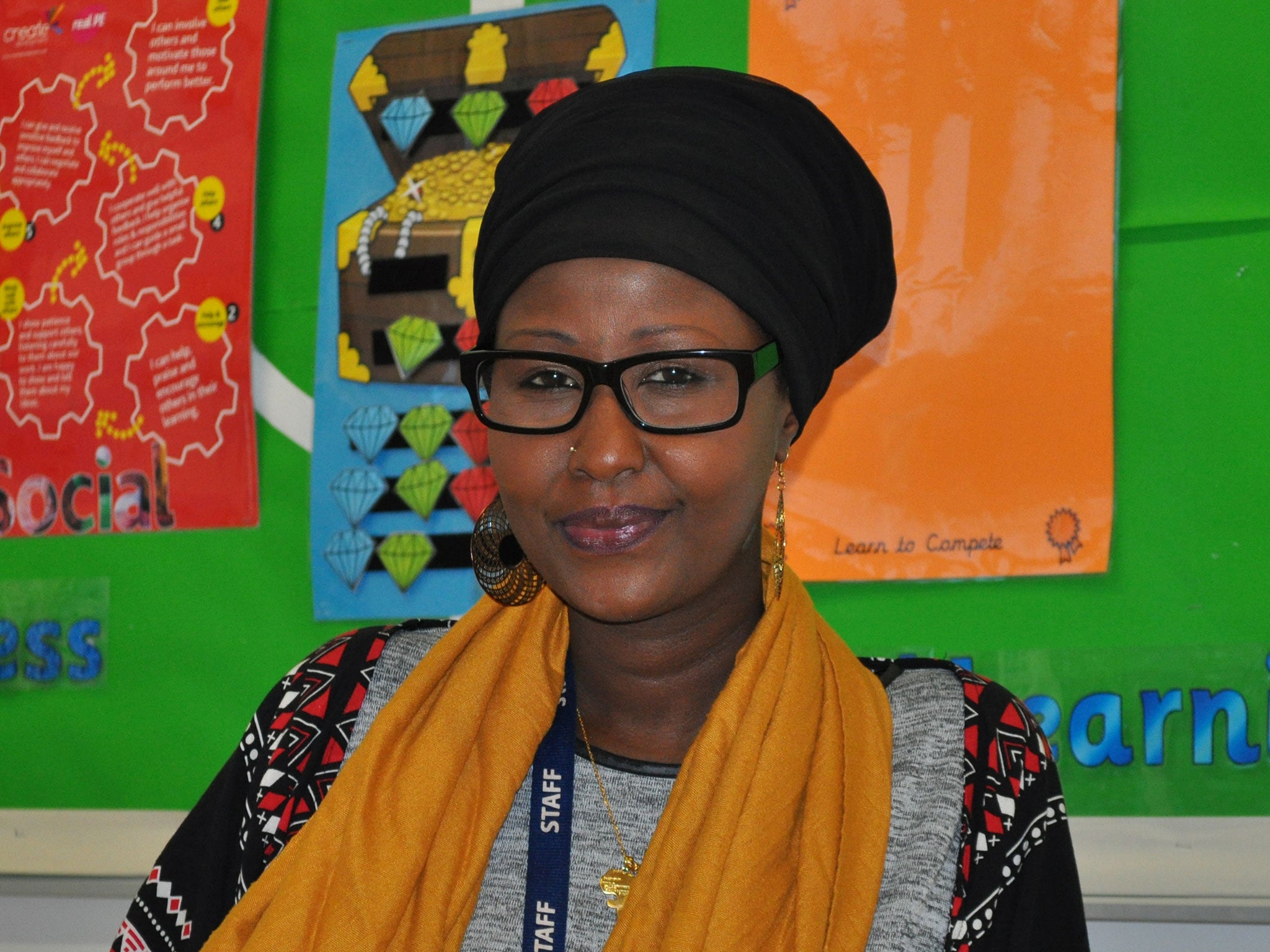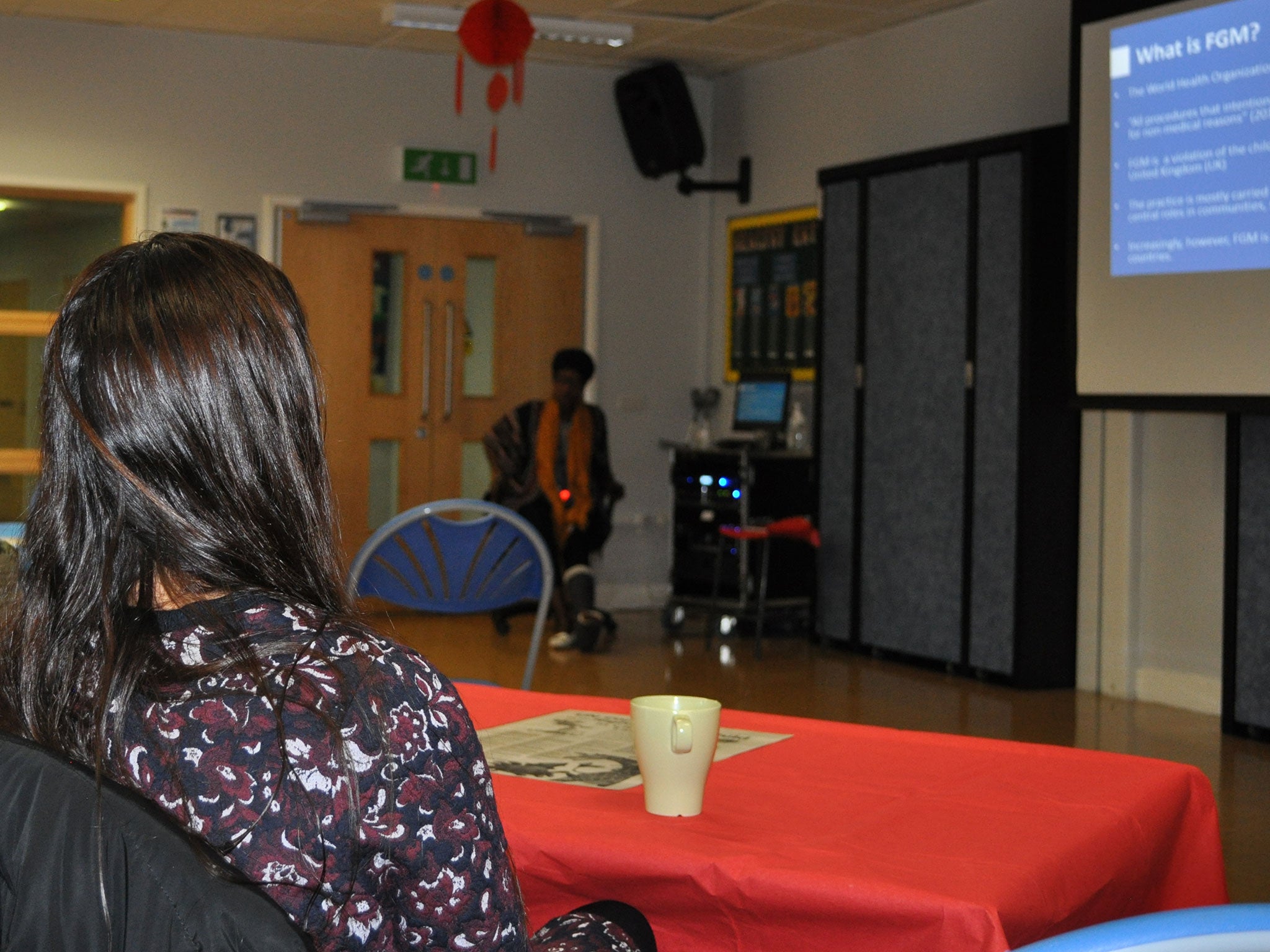'My sister was crying and screaming, and I was too': FGM survivor fighting to end practice that left her unable to have children
Warning: This article contains distressing content

“I woke up really early in the morning, I couldn’t sleep because I was so excited, it was like Christmas,” recalls Hoda Ali.
“I went to my mum’s room and asked: ‘Is it time yet?’. She asked me what I was doing up at 6am and told me to go back to bed. I remember going to bed and just waiting.”
But Ms Ali, who was then just seven years old, was not waiting for presents. She was waiting to undergo female genital mutilation (FGM).
Practiced on an estimated 98 per cent of girls in Somalia at the time, she had grown up to view it as a rite of passage shared with her friends and family.
The night before Ms Ali and her younger sister were due to undergo the procedure, their family had thrown a party at their home in Mogadishu and given them gifts.
“There are certain parts of the world where they don’t tell girls what they’re going through but in Somalia nobody hid it from us,” Ms Ali tells The Independent. “I would come home from school and say to my mum: ‘When is my time? Because I need this so I can be like my friends.’”
Ms Ali’s mother arranged for a traditional “cutter” to come to the family home to perform FGM on her two daughters, and even paid extra for local anaesthetic.
“This woman came in, she was wearing black head to toe,” Ms Ali remembers. “The first thing she said to me was: ‘Hoda, you’re the oldest, you know your sister is going to go first.’
“She said: ‘Make sure you don’t cry, make sure you don’t scare her, make sure you’re strong for her’, and then she left and went into our room.”
She described the woman putting a cloth down on the floor before two of her aunties held her six-year-old sister down and the FGM started.
“She had a needle and a syringe, she administered the local anaesthetic and then she cut. My sister was crying and screaming, I was crying too and I had my hand over my mouth. I was very frightened. But when I went in, I did what the woman said. I lay down on the floor - I didn't move, I didn't scream.
“The real pain only started when the local anaesthetic wore off.”
Ms Ali’s legs were bound together from hip to ankle and she was confined to her bed for two weeks, before the cutter came back to check on her work.
“If a stitch was out of place they would do it again,” she adds. “The whole point is for a husband to force himself and prove the woman is a virgin. When women give birth, it's very dangerous. Then they are stitched up again exactly the same, it happened to my sister four times.”
Ms Ali had undergone type three FGM, one of the most severe types of non-medical procedures that are practiced on girls across parts of Africa, Asia,and the Middle East.
Afterwards, she felt she was finally “fitting in” with a society where it is “taboo” to talk about FGM or the pain it caused.
But when Ms Ali turned 11, she fell seriously ill. It was 1991 and the Somali civil war had started the week before.
Her parents took her to a hospital run by an Italian charity, where doctors discovered, what they believed, a cyst formed by an accumulation of menstrual blood that had been unable to escape.
Doctors then attempted to perform an FGM reversal operation but Ms Ali’s cycle did not return to normal and she underwent repeated operations to drain the blood.
When hospitals in Mogadishu started getting bombed, the medical charity sent her over the border to Djibouti for more operations.
But they were unsuccessful and Ms Ali was transferred to Italy, where she and her father found themselves unable to return home in 1993.
A refugee in Milan, she finally had doctors perform a successful reversal operation. Ms Ali and her father lived in an Italian refugee camp and later sought asylum in the UK.
But the consequences of FGM never left her, causing heavy bleeding, infections and illness that eventually resulted in infertility.
Ms Ali and her husband, a British man “who knew nothing about FGM”, attempted IVF but the first cycle ended with a miscarriage.
“After that I got really sick,” she says. “I had pelvic infections, my organs were shutting down, I ended up in intensive care for four weeks…they were feeding me through my neck.”
Ms Ali wanted to attempt another cycle of IVF but doctors said it was too dangerous.
She is now using her experience to fight to end the practice around the world, and teach women and families in Britain about the law, as a lead on safeguarding with Ealing council in London.

She is reaching out to other survivors so they can support each other, build intelligence on how and where FGM is taking place, and seek professional help from groups like the Dahlia Project.
Ms Ali says legal changes that made it mandatory for health workers, social care professionals and teachers to report FGM cases to the police, were a major step towards shifting attitudes.
But she favours education over prosecution, hoping the former can ultimately bring the practice to an end.
“My mother was cut, my grandmother, my great-grandmother – all the women before me,” she says.
“Even though they knew the suffering and the pain, they were doing what they were doing so we could fit into society, we could go to school and not be bullied, we can get married. So a lot of the parents had that pressure on them – from society and from everywhere else.”
While FGM is on the decrease in Somalia and in other practicing countries, Ms Ali is wary of calls for the practice to be medicalised.
Advocates of allowing registered doctors to carry out mutilation in a clinical environment claim it would be safer than using “cutters”, whose profession is passed down the generations from woman to woman.
“Professionals cut deeply and more dangerously,” Ms Ali warns. “FGM is child abuse full stop. It’s against women and girls’ rights. Nobody should be opening my legs at the age of seven, holding me down and cutting me just to control my sexuality. That is what FGM is.”
Her fight against the practice has caused her to be targeted with vile online abuse by supporters of FGM, but Ms Ali is determined to turn the tide.
She says: “I had no childhood, I can’t have children and now I’ve dedicated my life to make sure I hopefully see a world that is free from FGM.”
